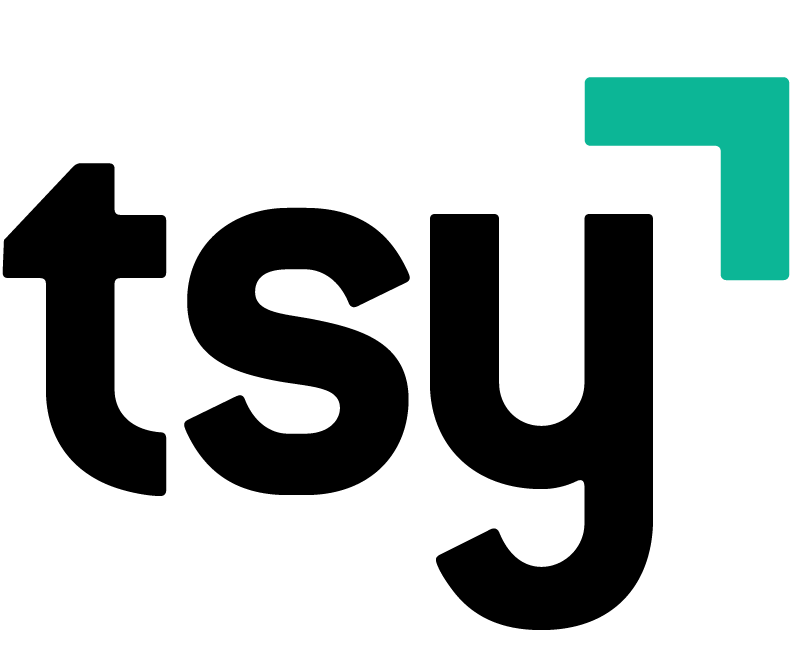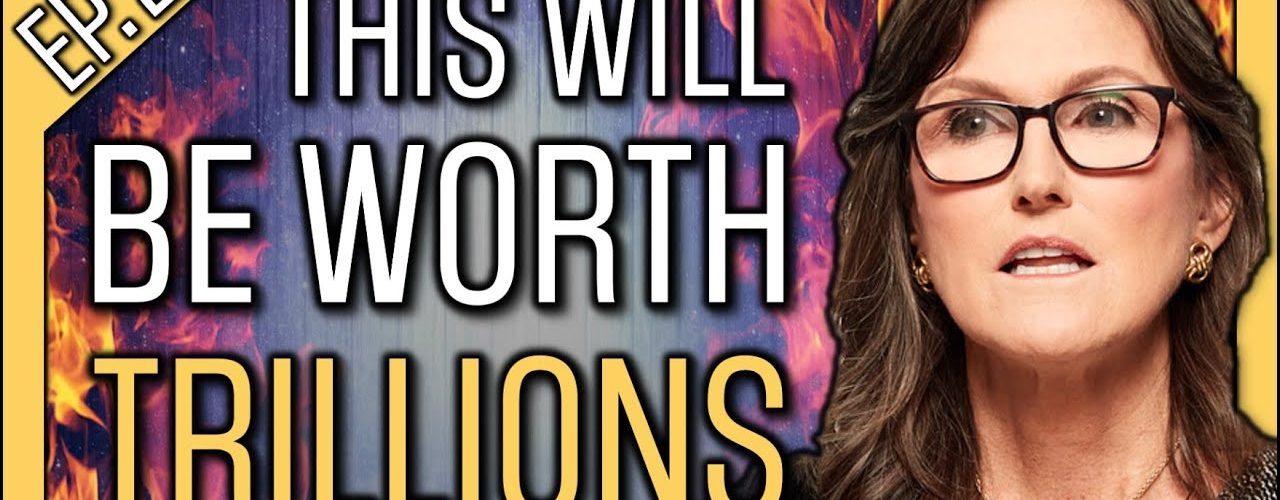Mentioned in Video:
- 💲 Bitcoin to $500K or ZERO? | Is BTC Safe Enough for Tesla & Big Banks? (ARK Invest Big Ideas 2021): https://www.youtube.com/watch?v=B5R2-o-tJI8
- ⚡ Could Tesla Clean Up Bitcoin? | HUGE Opportunity for Elon's Bitcoin Energy Concerns: https://www.youtube.com/watch?v=h9Rwqi5jQdI
- The ₿ Word | Live with Cathie Wood, Jack Dorsey, & Elon Musk (Bitcoin News): https://www.youtube.com/watch?v=Zwx_7XAJ3p0
- ARK Invest's and Squares Joint Paper on Bitcoin and Clean Energy (Direct Download): https://assets.ctfassets.net/2d5q1td6cyxq/5mRjc9X5LTXFFihIlTt7QK/e7bcba47217b60423a01a357e036105e/BCEI_White_Paper.pdf
- ARK Invest's 2021 Big Ideas Report (Bitcoin is featured twice): https://ark-invest.com/big-ideas-2021/
- Support the channel and get extra member-only benefits by joining us on Patreon: https://www.patreon.com/tickersymbolyou
⚠️ #ARKInvest and Square (SQ) recently co-hosted “The B Word”, a conference focused on #Bitcoin where they talked to #ElonMusk about #Tesla (#TSLA), energy, and the future of crypto mining, among other very important topics. This episode covers the highlights of what Cathie Wood said, @ARK Invest‘s stance on Bitcoin in general, and my thoughts on this massive crypto news.
Video Transcript:
[00:00:00.000]
This is a very big idea. How big could this be? And he said, well, how big is the US monetary base? Well, today it's $8 trillion, $8 trillion. I've been waiting for this for my entire career. You take away the boundaries, the different currencies. Just think about how explosive growth could be and how wide reaching taking the friction out of the system could be. But I'm also looking at the convergence between blockchain technology and artificial intelligence to change the world in ways that we cannot imagine right now.
[00:00:36.040]
In this episode, I'm going to highlight everything Cathie Wood just said at the B Word, a Bitcoin focused conference that was co hosted by ARK Invest and Square. Since your time is valuable, I've edited out all the pauses and sidebars and cut everything down to what I think are just the most important parts of the discussion, which I'll play for you without interruption. The discussion covers a wide range of topics ranging from blockchain serving as the payment layer of the Internet to using Bitcoin as a tool for economic empowerment, and, of course, addressing Elon Musk's concerns about clean energy in crypto mining.
[00:01:09.210]
If you're interested in my thoughts, I'll share them at the end of the episode. Timestamps are enabled for your convenience. So let's hash right into it.
[00:01:16.580]
I'm joined by three special guests. First is Cathie Wood, founder, CEO and CIO of ARK Invest. Next is Elon Musk, techno king of Tesla and chief engineer of SpaceX, and finally, Jack Dorsey, CEO of Square and CIO of Twitter. What's shaped and influenced your views on Bitcoin? And let's start with Cathie.
[00:01:42.040]
Well, the first thing was our focus on disruptive innovation. So, starting in 2011, Brett went in, our director of research, who I know will be on the program later. He started talking about this thing called crypto or Bitcoin at the time, and it was a curiosity as we were doing our brainstorms in research. But as we learn more about this open source ecosystem that might fulfill the role of the payment system that the Internet neglected to build into the system, not expecting commerce. We thought this might be something.
[00:02:17.380]
And then I became even more interested when I realized that my economics would come into play as well here and Art Laffer, my mentor from USC and a monetary scholar. In 2014, I asked him if he would collaborate on a paper on Bitcoin and he was a bit of a naysayer at first, but agreed to read the paper. He read the paper, tore it up. And from an economic point of view, really wanted to understand this. And he said, you know, I think you got something here.
[00:02:54.900]
This is a rules-based monetary system. I've been waiting for this for my entire career. So the combination of disruptive innovation, generally, economics on top of that and the huge misunderstanding out there as to what this is.
[00:03:12.350]
That was intriguing and launched our research effort.
[00:03:16.840]
A hallmark of Bitcoin is its fixed supply of 21 million coins. It may be the first system that humans have created that humans cannot later change. Cathie, I'm curious, with your background in monetary history and macro economics, what are your thoughts on that?
[00:03:36.220]
As I said, first rules based monetary system global ever. This is a very big idea. Once we had convinced him of the ecosystem itself, the role that it's playing, given that the rule is a quantity rule, that 21 million units is really a store of value rule. So there are three rules of money: store of value, very important, means of exchange (so for transactions) and the unit of account every good price in terms of whatever the unit is. So store of value is its primary use right now, the others exist unit of account reserve currency of the crypto asset ecosystem.
[00:04:27.440]
That's being seated a little bit toward stable coins right now. But the store of value is a very big rule and means of exchange with apps built on top of the Bitcoin blockchain, we think is going to become more of a reality. Right now, I value transactions take place over Bitcoin and that is a very useful rule. We look at those and I remember saying to Art, how big could this be? And he said, well, how big is the US monetary base? Well, today it's $8 trillion, $8 trillion.
[00:05:01.210]
At the time we were talking, it was 4 trillion. So we've gone through another crisis since then. And so the store of value, this idea that purchasing power will go up over time if demand rises relative to supply, supply ultimately fixed at 21 million units, that's that's a very good thing. Purchasing power going up globally around the world. And this idea that it's a hedge against confiscation of wealth, and that can take place in a myriad of ways. But inflation and especially hyperinflation in emerging markets, is the primary way.
[00:05:41.640]
Talk about destroying purchasing power. So that's a very big idea. And I'll also mention deflation, in some ways it's a hedge against deflation. I know some people are confused that we at ARK think that we're in a deflationary environment here in the United States. If that is true, the odds of a hyperinflation in the rest of the world, especially in emerging markets, is also true. But this deflation, and we learned from 2008/09. There's counter-party risk associated with deflation. And I think Bitcoin would be a hedge against that eventuality as well. So it's a very big idea.
[00:06:20.550]
We've been talking a lot about energy, but many institutions are facing questions around Bitcoin's relationship with ESG. Can you let you speak a little bit more to what is F and G in ESG and how Bitcoin might support those?
[00:06:34.720]
Sure. So E, of course, is environmental, S is social, and G is governance. And there is a massive movement afoot in the institutional world, especially to embrace ESG and make sure that their asset managers are doing the same. So we've just talked about environmental, and I really do believe that Bitcoin will be much more environmentally friendly, certainly than traditional gold mining or the traditional financial services sector. In many ways, it already is, and it's just going to get better that way. In terms of social, I know that many institutions, when they are thinking of social, they think of diversity and equity, pay equity and all of that.
[00:07:20.950]
From our point of view, the disruptive innovation point of view, social is much more than that. It is saving lives, allowing access to payment technology, as Jack is saying, everywhere around the world without friction, saving people these egregious fees. Think about it. You're paying anywhere from 8% to, as Jack said, 30% of your $100 that you're sending back to your family. That is a social responsibility I would submit. As is just the economic empowerment that Bitcoin will enable. We've talked about that already, and I know that Alex Gladstein
[00:08:07.150]
is going to be talking later about, you know, the 4.3 billion people in the world who are hostage to authoritarian regimes or the 1.3 billion who are living in double digit and triple digit inflation, if not more, saving them from the destruction of their purchasing power certainly is a noble social goal. So we expand social to be much more than the traditional ESG community. And then on governance, you've got the transparency of the ecosystem. It's completely transparent, unlike the opaqueness of financial systems and the toll takers in the traditional financial world.
[00:08:53.830]
And I think a huge part of governance in the Bitcoin ecosystem are the Bitcoin core developers. Now, before I met them, and I've had the pleasure and the honor of meeting many of them. That was a part of this ecosystem I didn't understand, but actually getting to sit down and talk to them… I have a learning curve need it certainly is on the technology side, but in terms of talking to them about economics, economic theory, failed monetary regimes. Historically, they know economic history, many of them, better than anyone I've ever met.
[00:09:33.930]
So that gives me a great degree of confidence that they do believe they're on a noble mission. They could be paid a lot more than they're being paid right now if they worked at Google or Facebook or some of these other areas. But they've chosen this sense of purpose for a noble goal. And they have incredibly strong technology backgrounds as well as a good understanding of economic history, especially monetary history. And it gives me a great deal of comfort, as I think about the governance of the ecosystem.
[00:10:10.390]
So Tesla and Square both put Bitcoin on the balance sheet. Cathie, I'm curious to hear from you. What advice would you have for other institutions looking to put Bitcoin on their balance sheet?
[00:10:21.540]
Bitcoin is being treated as an intangible asset, so we need to get past to reconsider this because with an intangible asset, if the asset goes up in price, it can't be marked up on their books. But if it goes down, it must be marked down. So there's some asymmetry there, which is we need to change that. Think about it. You take away the boundaries, the different currencies. Just think about how explosive growth could be and how wide-reaching, taking the friction out of the system could be.
[00:10:55.000]
So I would encourage corporations to think about that. That this ability to do business anywhere in the world. Ultimately, that's certainly a consideration. It also will serve as a hedge against inflation, especially as I mentioned earlier, there are a lot of emerging markets that are suffering from significant inflation. In other words, the purchasing power of those populations is going down, so they are going to migrate to Bitcoin and other ways to preserve purchasing power. And again, being able to sell to them in that kind of currency would be very useful.
[00:11:36.060]
It also suggests, once again, this idea of deflation, I think, is going to be a real thing. There's going to be good deflation caused by innovation, so demand will boom because of that, there's going to be bad deflation because so many companies out there have not been investing enough in innovation, their products are going to go obsolete. I think that's going to be the source of bad deflation and counter-party risk. And we learned from 2008/09 that counter-party risk can be devastating, almost cataclysmic. So a hedge against that as well, I think, would be another reason to do it.
[00:12:15.900]
But I also am very excited about this idea of network effect and the convergence of blockchain technology and artificial intelligence from a technology point of view. Think about the Internet in the earliest days. We couldn't imagine what was going to happen, but the impetus to growth was pretty incredible. So I am looking at this rules-based, monetary policy making for better lives around the world, as we've just said. But I'm also looking at the technology itself and the convergence between blockchain technology and artificial intelligence to change the world in ways that we cannot imagine right now solving even more problems, but creating more opportunities as well, which is the history of technology and disruptive innovation.
[00:13:06.340]
To me, this conference was filled with insights about all the different ways that Cathie Wood specifically, and ARK Invest in general are thinking about Bitcoin. It's not just one disruptive innovation platform that competes with one old way of doing things, but an entire digitally native global financial ecosystem that competes with the entire current monetary system today, which is worth over $8 trillion in the US alone. When you think about it on a global scale, it's not a stretch to say that Bitcoin is a $10 trillion idea with a capital T, because there are a fixed number of Bitcoin 21 million ever.
[00:13:41.640]
It becomes an excellent store of value since it won't get diluted down the road, As Cathie Wood points out, that makes Bitcoin an excellent hedge against inflation. Even though it's incredibly volatile, Bitcoin has been making higher highs and higher lows year after year. Since one of its primary functions is storing value, it's often directly compared to gold. In my opinion, in the distant future, Bitcoin and other cryptocurrencies could replace the entire physical monetary ecosystem and the portion of the gold industry responsible for storing value. Gold definitely has many other uses, ranging from jewelry to electronics.
[00:14:15.000]
But for your information, about one third of all gold is used as a financial instrument. Cathie Wood points out two things on this front. First, since supply is fixed, Bitcoin's price is driven by global demand, and second, because it's digital, an entire ecosystem of apps, services, and digital products can be built on top of it. That means that Bitcoin specifically and cryptocurrencies in general, have some real valuable properties based on the utility their blockchains provide. For example, digital art has value, and one use of non-fungible tokens or NFTs is to make uncopyable digital art.
[00:14:49.020]
So there's some real value to that type of digital art that exists on the Ethereum network, which is where these NFTs exist. Some portion of the Ethereum network is going to compete more and more with physical art over time, and the total art world has a crazy high net asset value. The reason I went on that little tangent is because the next point Cathie Wood makes is about Bitcoin being a hedge against the confiscation of wealth or asset seizure when governments seizure stuff that definitely includes things like your art.
[00:15:18.490]
So the point I want to make here is that whatever digital assets we can store on chain ranging from digital gold to digital art to simply stable coins tied to the dollar, those assets are all of a sudden, much harder to seize. That's another property of the blockchain you have to attribute value to because people pay to ensure their gold in their art against theft today. In terms of the environmental impacts, Elon Musk's concern was that when Tesla announced that they own Bitcoin and they plan to transact in it, Bitcoin's price spiked, and so did the mining of it, and thus the energy usage associated with it. Because you can't just spike the energy production of the sun or wind, that excess energy must have come from coal or other dirty sources.
[00:15:59.280]
Elon Musk also made a great point that crypto mining really requires consistent, reliable energy. So the answer is upping the baseline of the energy supplied from clean energy sources. If you want to hear more about ARK Invest's and Square's take on clean energy solutions for crypto mining, or you want to hear my crazy moonshot on how Tesla could bust into that market, check out my previous episode on that. I'll link it in the top right hand corner of your screen right now and in the description below as well.
[00:16:27.040]
Cathie Wood's take on social? The s in ESG really opened my eyes. From a disruptive innovation point of view, social causes are about saving lives. In this case, that means eliminating predatory financial practices and middlemen, removing unnecessary fees and delays and removing the friction associated with things like converting currencies between countries. These are all improvements to the system in the favour of the individual, meaning they're all forms of economic empowerment for you and for me, not the huge bureaucracies that run the legacy financial systems of the world today, the same bureaucracies that destroy purchasing power by printing money nonstop or seizing assets based on rules that they themselves create and can change at any time.
[00:17:08.100]
Protecting against this is the definition of positive social impact for billions of people around the world, and I never really thought about it that way before this conference. The same goes for governance. The ability to search through on chain transactions and aggregate all the data you want is massive in terms of transparency and accountability. That means there will be all sorts of financial apps and services that will sit on top of this open dataset that can do things like calculate the fairest rate for borrowing money in real time, or let you see how institutions are spending or moving your assets.
[00:17:39.960]
It's a crazy shift in terms of information available to the individual. It's also great to hear that Cathie Wood has actually met some of the core developers for these ecosystems and is impressed with their economic and technical backgrounds. They understand the history and context of the finance world and how to use technology to overcome its biggest challenges. That makes me very bullish because when you invest in something, you're ultimately investing in the people doing that thing. That matters. If ARK Invest opens a fund themed around environmental, social and governance goals, I wouldn't be surprised to see it hold fintech companies that focus on disintermediation and transparency.
[00:18:16.840]
And speaking of future crypto companies, I can't wait to see what types of companies end up combining blockchain technology with other disruptive innovation platforms, not just artificial intelligence. There's a lot of room for innovation and energy storage and consumption, computer chip design, software development, and even new types of math that take advantage of different properties of the blockchain. Think about your favorite companies right now, Tesla, Square, Apple, Nvidia, Palantir, and how their innovations could be leveraged with blockchain technology or in another part of the crypto space.
[00:18:48.190]
I think you'll be surprised with how many ideas you'll come up with and the overlaps you'll find. In fact, comment below with some of your favorite companies and how their technologies today could be applied to crypto tomorrow. Are you thinking hardware, software, data science? Something else entirely? I'm excited to hear your thoughts. Either way, I hope this episode provided you with the solid recap of Cathie Wood's best point on Bitcoin and the massive multi-trillion dollar implications of this digitally native financial system. If it did, let me know by investing in the like button and subscribing to the channel with all notifications turned on.
[00:19:21.760]
That's a great way to invest in the channel that invests in you. Until next time. This is Ticker Symbol: You. My name is Alex, reminding you that the best investment you can make is in you.
If you want to comment on this, please do so on the YouTube Video Here














